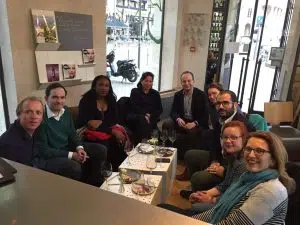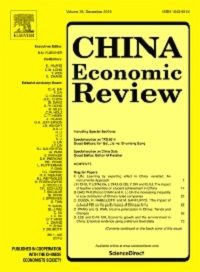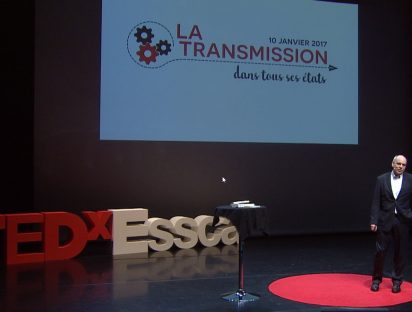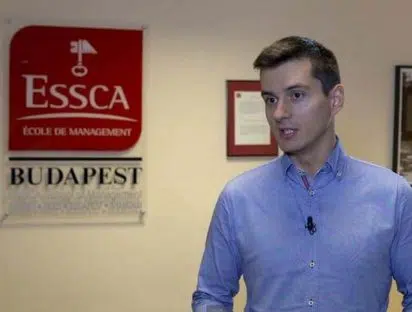5 Key Takeaways from this workshop
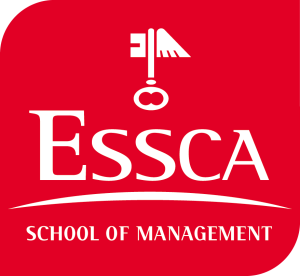



The Development of a European Environmental Conscience
1st – 2nd of April 2019 – ESSCA Campus Bordeaux
The interdisciplinary research workshop brought together scholars and practitioners from the field of sustainable development research. Participants came to Bordeaux from all over the globe (France, Germany, Netherlands, Romania, Australia and the Philippines). The two-day workshop dealt with several dimensions of sustainability: Economic, and social and environmental.
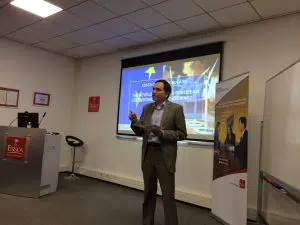
Thomas HOERBER – Director EU*Asia Institute
5 Key Takeaways
1. Lack of EU regulation and effectiveness are barriers for more sustainability
The example of soil destruction was used by Dr Marjorie Tendero to show that EU regulations still have many gaps. Once a regulation is in place, it is essential to evaluate its effectiveness, which was illustrated by Carola Guyot Phung with the example of waste management.
2. More sustainability needs innovative policy solutions
Geisha Sanchez emphasized the need for mission-oriented innovation policy at the EU level. In her presented research project, she used the example of EU plastic regulations. Social aspects of sustainable development were discussed by Julius Cesar Alejandre, in how a natural environment can complement medical treatments.
3. International, national and local solutions are necessary to achieve the Paris Climate Goals
Dr Thais Diniz Oliveira emphasized the importance of cooperation between developed and emerging countries. Her presentation on the potentials of linking carbon-pricing systems of the EU and Brazil focused on the international level. Practitioner Alexander Klein who explained how governments try to implement EU and UN climate goals covered the national level. Javanshir Fouladvand focused on the local level. He emphasized the fact that sustainability is taking place at a local level. With his research on urban thermal solutions organised in a bottom-up approach, he laid out how local representatives are involved.
4. The EU should promote sustainability not only at home but also abroad
Dr Kristina Kurze used the case study on the EU external energy policy to illustrate the political dimension of sustainability. Sustainability should not only be a goal at home but can be included in the external relations of the EU as well.
5. De-Growth as one potential solution to break the vicious cycle of environmental destruction
Dr Cle-Anne Gabriel showed in her interactive presentation, that de-growth approaches would make it necessary to re-invent the way societies, companies and individuals perceive progress. Dr Gabriel Weber used the example of the Camino de Santiago, to illustrate the damages of mass tourism and the potential of sustainable tourism. He showed cases of hotel owners refusing to grow.
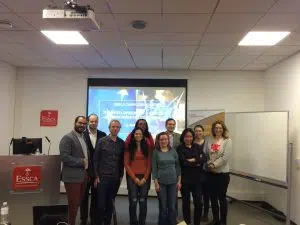
Scholars and practitioners from the field of sustainable development research
Prof Thomas Hoerber suggested possible publication perspectives (e.g. the Routledge book series on the Governance of Sustainability in Europe) concluded the workshop.
Finally, we would like to thank Alliance Europa for the generous funding of this workshop.
Conference Programme
Day 1 (1 April 2019) – EU Regulation and Technological Change
- Dr Marjorie Tendero, ESSCA School of Management, Angers: Soils of anarchy? A brief comparison of regulations regarding soil contaminated sites in Europe
- Carola Guyot Phung, PhD candidate, Ecole Polytechnique Bordeaux: The effective impact of regulatory backdrops for ERP in Europe on sustainability
Discussant, Dr Thomas Hoerber, ESSCA – School of Management, Angers
The first conference day was concluded with a shared dinner at a typical French restaurant.
Day 2 (2 April 2019)
- Julius Cesar Alejandre, Bangor University, Wales, Blue-Green Prescription: Generating Positive Outcomes for Human and Planetary Health Proponent
- Geisha Sanchez, PhD candidate, University of Sussex, EU Policy Mix for Plastics: Transformative or just Regulatory?
Energy and Environment in the European Union
- Dr Thais Diniz Oliveira, CIRED/ AgroParis Tech, Angelo Costa Gurgel, Steve Tonry: Linking the EU ETS with emerging schemes: a bilateral cooperation with Brazil
- Javanshir Fouladvand, TU Delft, Amineh Ghorbani, Paulien Herder: Urban thermal commons: The new community energy systems
- Alexander Klein, Department of Sustainability, Government of Romania: Whom should I listen to? The EU’s Competing Sustainable Development Frameworks for implementing the 2030 Agenda
Discussant, Dr Kristina Kurze, University of Göttingen
Case studies of (Un)sustainability in Europe and beyond
- Dr Kristina Kurze, University of Göttingen: Diffusing a „European model” of the sustainability norm? A case study of EU external energy policy
- Dr Cle-Anne Gabriel, The University of Queensland: Brisbane ‘A Post-Growth Future for Business in Europe and Australasia’
- Dr Gabriel Weber, ESSCA School of Management, Bordeaux, Laura Ardila-Fontecha: Degrowth and Commons in European Tourism – The Case of the Pilgrimage Route to Santiago de Compostela (Spain)
Discussant, Dr Thais Diniz Oliveira, CIRED/ AgroParis Tech X
[custom_carousel carousel_src1= »https://www.essca-knowledge.fr/wp-content/uploads/sites/4/2019/04/IMG_0234.jpg » carousel_the_title1= »Workshop in the framework of the GoS-research network » carousel_description1= » » carousel_btn_label1= »See the project page » carousel_btn_link1= »https://eu-asia.essca.fr/previous-projects/governance-of-sustainability-in-europe » carousel_src2= »https://www.essca-knowledge.fr/wp-content/uploads/sites/4/2019/04/IMG_0230.jpg » carousel_the_title2= »Workshop in the framework of the GoS-research network » carousel_description2= » » carousel_btn_label2= »See the project page » carousel_btn_link2= »https://eu-asia.essca.fr/previous-projects/governance-of-sustainability-in-europe » carousel_src3= »https://www.essca-knowledge.fr/wp-content/uploads/sites/4/2019/04/IMG_0235.jpg » carousel_the_title3= »Workshop in the framework of the GoS-research network » carousel_description3= » » carousel_btn_label3= »See the project page » carousel_btn_link3= »https://eu-asia.essca.fr/previous-projects/governance-of-sustainability-in-europe » carousel_numberofitems= »3″][/custom_carousel]
The workshop is organised within the scope of the Governance of Sustainability In Europe Network.
See the call for papers for this workshop

